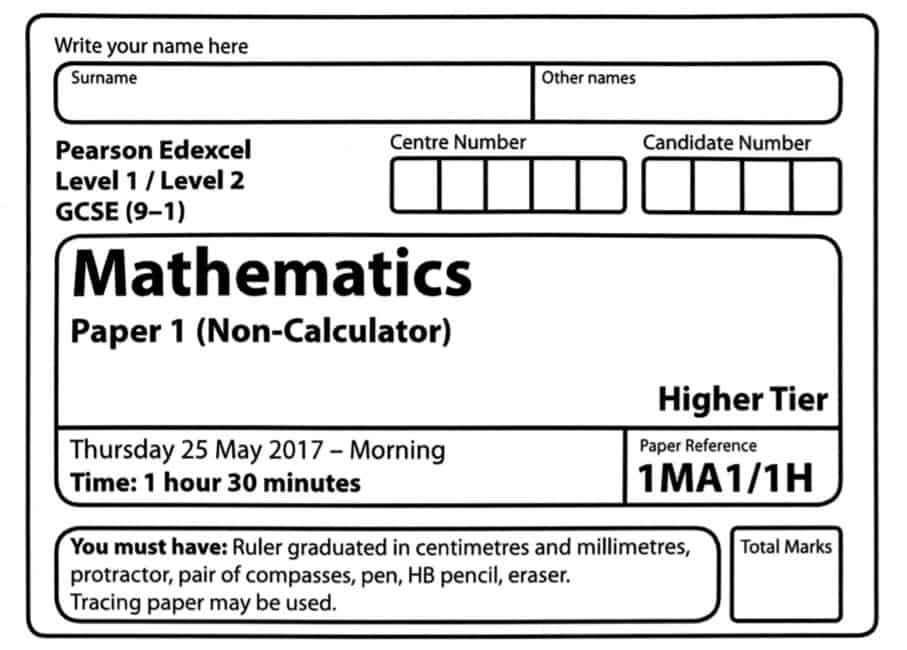
In this post we’re aiming to revise Edexcel GCSE Maths Higher Paper 2017 – Paper 1. The paper is non calculator based and it’s very important to always show your working – even the fairly obvious calculations. This will help the examiner to award as many marks as possible and it could give you a higher grade.
Here’s a link to download the question paper: Higher Paper 2017 – Paper 1 Questions
Here’s my solutions: Higher Paper 2017 WORKED ANSWERS
Here’s a copy of the mark scheme: Edexcel GCSE Maths Higher Paper 2017 MARK SCHEME
Watch on YouTube
Edexcel GCSE Maths Higher Paper 2017 – Paper 1 Questions 1 – 9
Edexcel GCSE Maths Higher Paper 2017 – Paper 1 Questions 10 – 18
Edexcel GCSE Maths Higher Paper 2017 – Paper 1 Questions 19 – 22
It would be good if you can try each of the questions as you watch the video. Revision should always be active and it’s much better to pause, attempt the question and then compare your solution. If you need any extra practice here’s a link through to some more GCSE practice questions.
The newer GCSE’s are much more focussed on problem solving so:
- Always write the formula you are using, as it might help to work through the problem
- Sometimes you might need to write the formula several times during a question – it’ll help to keep you focussed
- Take each question a little at a time. I tend to use square brackets to remind me of something (such as a negative), or to focus on a particular part of the question
- Become familiar with fractions … including fraction reduction to help with division, or moving decimal points by making the denominator 10 or 100. There’s quite a few ways to use fractions in your calculations.
- Always show our working
For more information here’s a link to The Ultimate Guide to Maths.
Leave a Reply